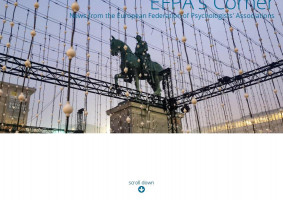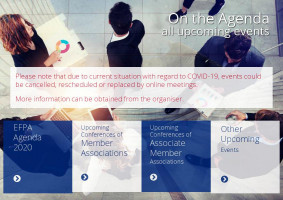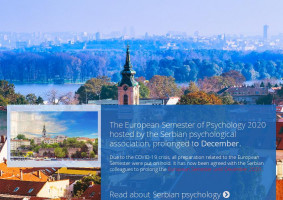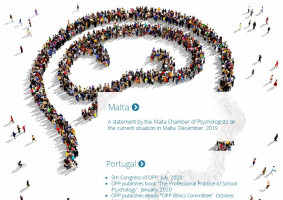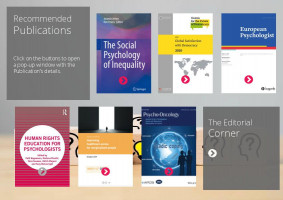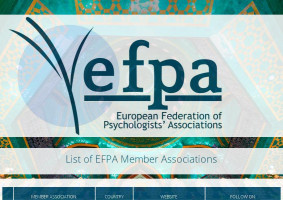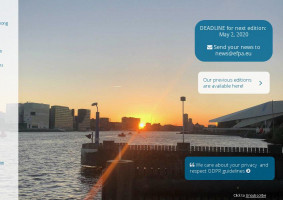The Social Psychology of Inequality
This book will address questions relating to perceptions of inequality, mechanisms underlying effects of inequality, various consequences of inequality and the factors that contribute to the maintenance of inequality.
The target audiences are students at advanced undergraduate or graduate level, as well as scholars and professionals in the field.
The book fills a niche of both applied and practical relevance, strongly emphasizing theory and integration of different perspectives in social psychology.
Given the broad interest in inequality within the social sciences, the book will be accessible to sociologists and political scientists as well as social, organizational, and developmental psychologists. The insights brought together in The Social Psychology of Inequality will contribute to a broader understanding of the far-reaching costs of inequality for the social health of a society and its citizens.
This report was prepared at the Bennett Institute for Public Policy at the University of Cambridge and forms part of the work of the new Centre for the Future of Democracy.
The Bennett Institute for Public Policy at the University of Cambridge aims to become a world leader in achieving successful and sustainable solutions to some of the most pressing problems of our time.
Our goal is to rethink public policy in an era of turbulence and growing inequality. Our research connects the world-leading work in technology and science at Cambridge with the economic and political dimensions of policy making. We are committed to outstanding teaching, policy engagement, and to devising sustainable and long lasting solutions.
The Centre for the Future of Democracy was launched in January 2020 to explore the challenges and opportunities faced by democratic politics over the coming century. Based at the Bennett Institute for Public Policy, the goal of the Centre is to understand the prospects for democracy in broad historical and international perspective, getting beyond the immediate crisis to identify different possible trajectories for democracy around the world. This means distinguishing what is essential to democracy, what is contingent and what can be changed. That requires taking the long view, drawing on the big picture and expanding our imaginative horizons. This is what the Centre hopes to achieve, and in doing so it will connect with work being done across Cambridge in a wide variety of fields, from computer science and environmental science to history and philosophy.
The Centre’s aim is to move away from a fixation on the here and now, and beyond the who and what of democratic politics – who is going to get elected, what are they going to do? – to look at the how. How do democratic decisions get made and how can they be made differently? How can the consent of losers and outsiders be achieved? How can new social divisions be bridged? How can the use of technology be brought under democratic control? And if we can’t do these things, how will democracy not merely survive but flourish in the future?
Executive Summary
We use a new dataset combining more than 25 data sources, 3,500 country surveys, and 4 million respondents between 1973 and 2020 asking citizens whether they are satisfied or dissatisfied with democracy in their countries.
Using this combined, pooled dataset, we are able to present a time-series for almost 50 years in Western Europe, and 25 years for the rest of the world.
We find that dissatisfaction with democracy has risen over time, and is reaching an all-time global high, in particular in developed democracies
Report can be downloaded here on the website of The Bennett Institute for Public Policy at the University of Cambridge
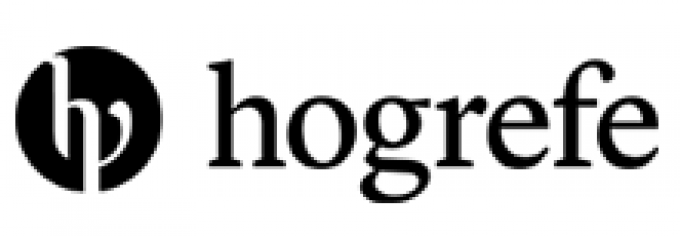
Volume 24, no. 4 is now available online
Highlights:
Delay Discounting in Impulsive Behavior- A Systematic Review
When the Fun Is Over- Toward a Motivational Account of Exhaustion and Recovery
Looking Ahead - Challenges and Opportunities for Applied Psychology in Prevention and Promotion
This ground-breaking book is designed to raise awareness of human rights implications in psychology, and provide knowledge and tools enabling psychologists to put a human rights perspective into practice.
Psychologists have always been deeply engaged in alleviating the harmful consequences human rights violations have on individuals. However, despite the fundamental role that human rights play for professional psychology and psychologists, human rights education is underdeveloped in psychologists’ academic and vocational training.
This book, the first of its kind, looks to change this, by:
raising awareness among professional psychologists, university teachers and psychology students about their role as human rights promoters and protectors
providing knowledge and tools enabling them to put a human rights perspective into practice
providing texts and methods for teaching human rights.
Featuring chapters from leading scholars in the field, spanning 18 countries and six continents, the book identifies how psychologists can ensure they are practising in a responsible way, as well as contributing to wider society with a clear knowledge of human rights issues in relation to culture, gender, organisations and more.
Joint Statement: Improving the healthcare access for marginalised people
The Nobody Left Outside (NLO) initiative is a collective of organisations representing people in some of the most marginalised communities in Europe, who are underserved with respect to healthcare. These communities include homeless people, LGTBI people, people who use drugs, prisoners, sex workers and undocumented migrants.
People in these communities are at a significantly higher risk of poor health than the general population and are often in highly vulnerable situations. At the same time, they face significant challenges in accessing healthcare owing to a complex range of barriers, coupled with discrimination and stigma. As a result, many people most at need of healthcare are among the least likely to receive it. In effect, they are left outside healthcare systems.
The NLO initiative provides a European-level platform for organisations to collaborate to identify shared challenges, exchange lessons and good practice, seek innovative solutions, and speak with a unified voice to offer guidance to improve healthcare access for the communities of people they represent – on the basis that nobody should be left outside.
Psycho-Oncology
The Editorial
Corner
THIS IS NOT an easy read as you can tell from the title, but it is worth the effort as the book develops ways to understand what often seems unintelligible, and as it is from a social psychological perspective it provides new insights and for me, some surprising ones. The foreword to the book is by David Crane, who was founding chief prosecutor to the war crimes tribunal for Sierra Leone. I mention this as it outlines some good principles that I found helpful when reading the book. These are:
1. All peoples, cultures and nations have the capacity to commit atrocity, hence a genocide.
2. The bright red thread to atrocity prevention is politics.
3. It is all about the victims and reaching out to them as key to the validity of any justice mechanisms.
4. The rule of law remains more powerful than the rule of the gun.
The twelve chapters are grouped in to four sections: Predispositions for extreme intergroup violence; The genocidal mindset; perspectives on obedience and social influence and finally the aftermath and counteracting denial. In a short review, it is not possible to do justice to all the chapters and I will select three to discuss. Suffice it to say, all chapters are well written, review the relevant literature in detail and are both informative and challenging.
Michael Bilewicz’s chapter looks at how people explain participation in genocide – and his and colleagues’ focus has been the Holocaust. He has received some press coverage as his work on contemporary Polish anti-Semitism has brought him into conflict with the authorities and it is alleged his promotion has been blocked by the President of Poland. The research he describes compares how people from different countries account for participation in the Holocaust. He also discusses the literature on what two scales in experimental studies – Social Dominance Orientation (SDO) and Right-Wing Authoritarianism (RWA) predict – and he concludes that the usual liberal/conservative dichotomy is misleading and suggests that SDO and RWA both have their place in explaining the origins and underlying dynamics of violent intergroup conflict.
The second chapter I thought was particularly revealing concerns the role of dehumanisation; as Nick Haslam notes, it is almost a truism that this occurs, and he documents it in detail; the role it plays in both initiating and sustaining genocidal violence but also how it can justify it. In the final section of the chapter he discusses an important paper (Rai et al., 2017), that shows that dehumanisation is complicated – and where there is felt to be a moral duty involved, humanisation rather than dehumanisation can be a powerful motivator. And this last point reminded me of the work of the other Haslam, Alex, whose work, with people like Stephen Reicher, on leadership and tyranny has shown how people who take part in genocidal violence should not be understood as only conforming, but may be enthusiastic supporters of terrible crimes. In their chapter on engaged followership and engaged fellowship, they develop the social identity approach, that has been so successful in other areas, for example healthcare and politics (Jetten et al., 2012; Reicher & Haslam, 2017) and how you can apply this set of ideas to understanding mobilising both perpetrators of intergroup conflict, but also resistance to it.
Underlying this work is the current refugee crisis and a good source for this more general literature is in the recent special issue of the European Journal of Social Psychology (Echterhoff et al., 2019).
I thoroughly recommend this book as it has tremendous contemporary relevance as the world is facing enormous challenges that have in the past resulted in entire populations turning against each other and we can see echoes of this in much xenophobic discourse. Psychologists have an important role in both understanding this and doing something about it.
References
Echterhoff, G., Hellmann, J.H., Back, M., Esses, V. & Wagner, U. (2019). Special Issue on ‘The Social Psychology of Forced Migration and Refugee Integration’. European Journal of Social Psychology, 49(7), 1337–1343. doi:10.1002/ejsp.2613
Jetten, J., Haslam, C. & Haslam, S.A. (2012). The social cure: Identity, health and well-being. New York: Psychology Press.
Rai, T.S., Valdesolo, P. & Graham, J. (2017). Dehumanization increases instrumental violence, but not moral violence. Proceedings of the National Academy of Sciences of the United States of America, 114(32), 8511–8516. doi:10.1073/pnas.1705238114
Reicher, S. & Haslam, A. (2017). Trump’s appeal: What psychology tells us. Scienti!c American Mind, 28(2). Retrieved from https://www.scientificamerican. com/article/trump-rsquo-s-appea l-what-psychology-tells-us/
Abstract
Any professional or scientific discipline has a responsibility to do what it can to ensure ethical behavior on the part of its members. In this context, this paper outlines and explores the criticism that to date the emphasis in ethics training in professional psychology, as with other disciplines, has been on the rational elements of ethical decision making, with insufficient attention to the role of emotions and other nonrational elements. After a brief outline of some of the historical background to the development and understanding of ethical decision making, relevant theoretical and empirical literature on the influence of emo- tional and other nonrational factors on our ethical decisions is reviewed. The implications of this literature for ethics education and training are outlined, particularly with respect to the use of case studies. An integrative approach is proposed, and conclusions and recommendations are offered with respect to such an approach.
_w544_h554_1.png)
_w766_h1136_1.jpg)

